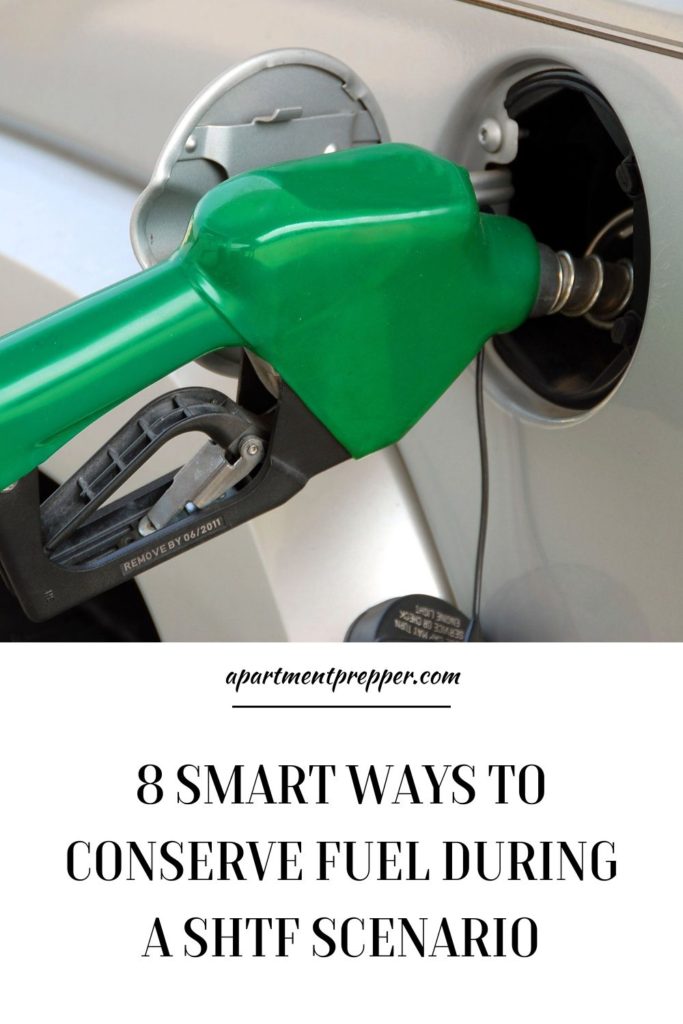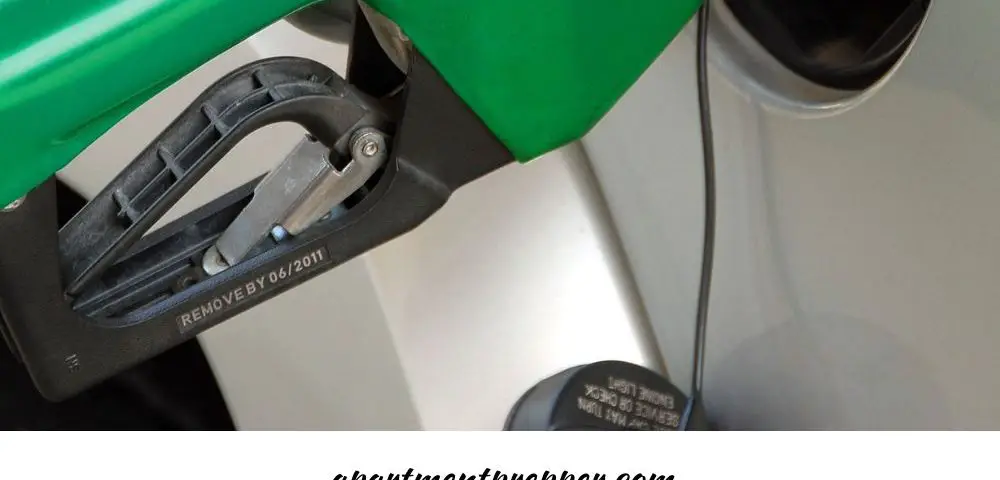Written by Martin Banks
Right now, keeping your daily driver fueled is easy. You might balk at the price at the pump, but you have the option to drive up to the gas station and put as much gasoline or diesel into your tank as you can afford, whenever you want to.
If the world ends or we find ourselves in one of a million different shit-hits-the-fan (SHTF) scenarios, keeping your vehicles on the road becomes infinitely more complex. Conserving fuel will transition from a fun way to reduce fuel expenditures to a necessity if you hope to keep moving forward. Here are eight smart ways to conserve fuel during a SHTF scenario.
1. Reduce the Vehicle’s Weight
We often fall into the trap of keeping stuff that we think we might need in our trunks – even when it’s out of season. What’s the point of keeping bags of salt or kitty litter in your trunk during the warm spring and summer months?
We understand that bug-out vehicles are designed to carry you and your supplies wherever you need to be, but relying on them to constantly store and haul all your survival gear will cut into your fuel supplies. According to the Department of Energy, reducing your vehicle’s weight by just 100 pounds can improve your fuel efficiency by around 1%.
2. Opt for Ethanol-Free Gasoline
Adding ethanol to gasoline was one of many results of the Clean Air Act revision made in 1990. Companies were left scrambling to find ways to reduce the amount of harmful pollutants that gasoline exhaust emits. The solution was to include a small percentage of ethanol.
However, in addition to causing damage to some engines, ethanol can cause the fuel to spoil faster. Ethanol increases the fuel’s tendency to attract water, which causes it to go bad more quickly. Standard gasoline, without ethanol, has an untreated shelf-life of around six months. Adding ethanol to the equation cuts that shelf-life in half.
3. Don’t Skip Your Tune-Ups
Changing your vehicle’s oil and swapping out the air filter might not seem like the highest priority in a survival situation, but it can help you conserve fuel.
According to the U.S. Department of Energy, keeping up with regular maintenance can improve your fuel efficiency by around 4%. Furthermore, replacing a faulty oxygen sensor can increase your vehicle’s fuel efficiency by up to 40%.
4. Don’t Leave It Idling
Having your engine hot and ready at a moment’s notice might seem like the best option in a tense survival situation, but it isn’t the best choice if you’re trying to conserve fuel. Leaving a vehicle idling just wastes fuel. It’s one of many bad driving habits you should reconsider if fuel conservation is essential for you.
5. Invest in Stabilizers
There are products available that can help fuel last longer. When added to a gasoline or diesel tank, fuel stabilizers can increase the fuel’s shelf-life to up to two years.
If you’re adding a stabilizer product to your tank, make sure you run the engine for at least 10 minutes to ensure it’s mixed well in the tank and makes its way into the fuel system to prevent gummy deposits from forming and clogging up the system.
6. Keep the Tanks as Full as Possible
Moisture is only one part of the problem when it comes to long-term fuel storage and fuel conservation. Evaporation and oxidation caused by exposure to oxygen also contribute to these issues. Fuel might be scarce, but make it a point to keep your tanks as full as possible to prevent evaporation that could accelerate your fuel’s degradation.
7. Opt for Older Vehicles
This tip might sound counterintuitive, but hear us out. Older vehicles might not be the most fuel-efficient option, but they are not as picky when it comes to fuel types or quality. You can get away with putting some almost-gummy gasoline in an older engine. Trying to do the same with a newer vehicle will clog up the works.
Plus, vehicles equipped with carburetors instead of fuel injectors are easier to disassemble and clean, which could be vital in a SHTF scenario.
8. Switch to Diesel
In a SHTF or survival situation, fuel will probably be hard to come by. It will become even more challenging as the years go by, as looters empty gas station tanks and siphon cars, and anything left over sits until it spoils.
Opting for a diesel bug-out vehicle means you can switch your system to run on biodiesel or even vegetable oil. The latter isn’t recommended for long-term use, but if you have a setup that allows you to generate biodiesel from organic waste, you will have no problem keeping your vehicle fueled.
Stay Safe Out There
A million things could end the world at any given moment, from a super storm wiping out entire coastlines to a dictator with slippery fingers hovering over that big red button. Fuel will become harder and harder to come by as the years pass. Even if the world never returns to normal, you still have options to keep your vehicles fueled and on the road.
About the author
Martin Banks is the managing editor at Modded. Follow him on Twitter @TModded for frequent updates on his work.
We are an affiliate of Amazon.com, which means we received a small commission if you click through one of our Amazon links when you shop, at totally no cost to you. This helps keep the lights on at the blog. Thanks!



One comment